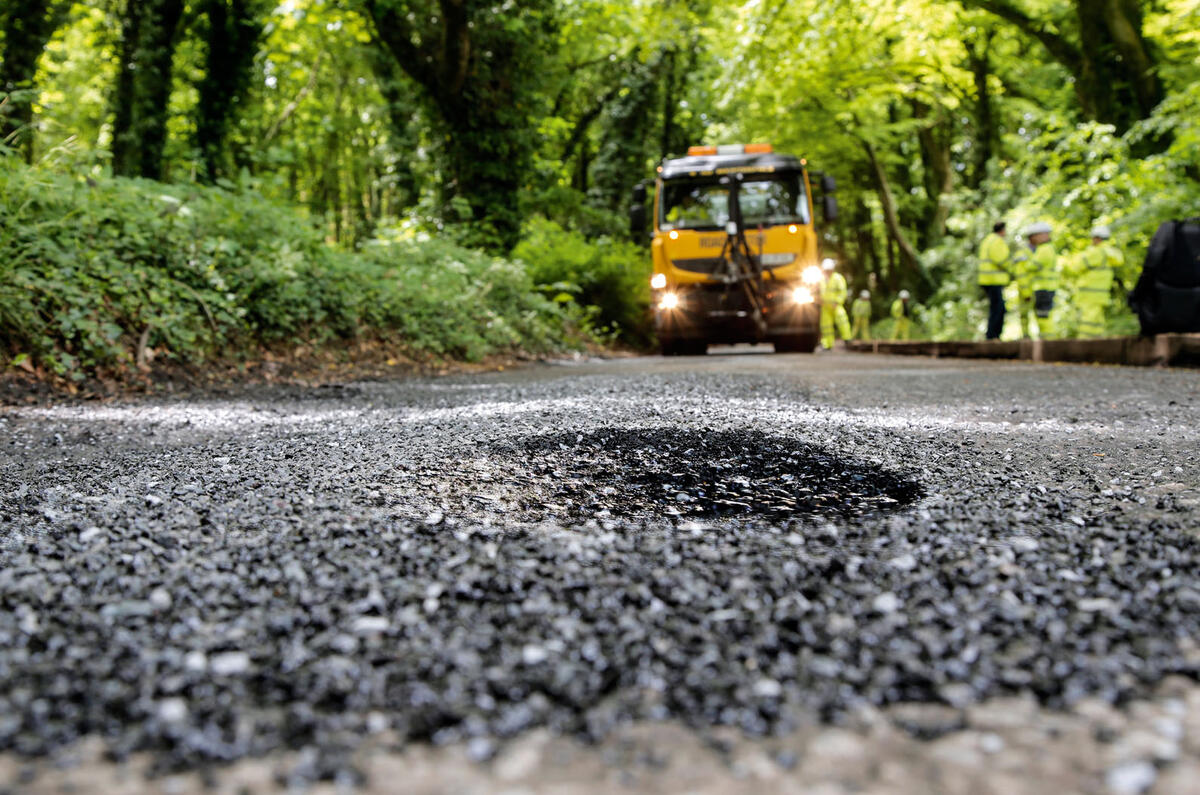The Best from the East and other spells of bad weather recently has led to a huge rise in the number of potholes on Britain's roads. As a result the Government has created a £100 million repair fund, on top of previously announced initiatives, to help remedy the problem.
But how exactly do you fix a pothole? Well, a few years back our intrepid reporter, John Evans, went to find out...
Fighting potholes with Hampshire County Council
A few feet from the busy A31, the latest weapon in Hampshire County Council’s fight against potholes is hard at work.
A bright yellow truck, with a hydraulically operated boom extending from a large container on its back, over the cab and towards the road ahead, is slowly and noisily making its way along a lay-by, its driver searching for potholes.
When he finds one, he stops the vehicle and extends its ‘proboscis’ towards the hole, into which it blows compressed air, scattering any debris. Hot bitumen emulsion is then sprayed in and around the sides of the dry and pristine cavity. This seals the pothole and creates a bonding layer for the precisely targeted, high-velocity blast of aggregate and bitumen mix that follows.
Next, the proboscis releases a ‘pad coat’ of chippings onto the still-tacky bitumen, followed by a final spray of dry aggregate. GPS and cameras record the position and status of the pothole and the data is relayed to the council. Time taken from start to finish? Three minutes.

Amey, the contractor showing off the Archway Roadmaster 295 to the council highways team, says 17 such vehicles, each costing £175,000, are being used around the country. Paul Anderson, Amey’s account manager, says the repairs are good for at least three years.






















Join the debate
Add your comment
Does anyone realise.....
Does anyone realise that a Councils are strapped for Cash?, that each department has to fight for its budget, has to get what’s left of last years budget spent before the end of their financial year or lose what’s left?!, it’s all very well moaning about it, and yes some have genuine claim of Car damage, but, if your Council hasn’t got the cash it can’t do a proper job of fixing the Road Acne!!!!
The issue here has already
The issue here has already been brought up many times in the above posts. The reason the UK spends so much on road repairs is that we just throw some 'wet' tarmac in the hole, pat it down and then let traffic start driving over it the moment it's done.
I drive to work along the A361 in Somerset and they allowed trucks to drive along that right after it was all resurfaced, so now it has a nice grippy new surface with two smooth shiny tracks along it where the truck tyres pressed the stones into the soft top surface!
I wonder how many councils
I wonder how many councils use the system described above? I've never seen one in my local area, and looking at the repairs they make here I think its just a couple of guys with a lorry of tarmac. They always leave a humped finish, presumably to cater for sinking, and no doubt that's just guess-work. I've seen times when they've filled in one end of a trough in the road, but left the rest of it because it wasn't quite as bad, then come back a few months later to do the other end, so I doubt the contractors are activeley looking for other 'unreported' faults.